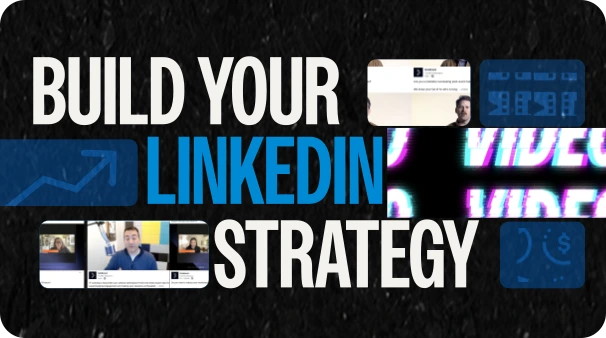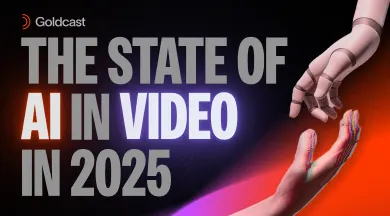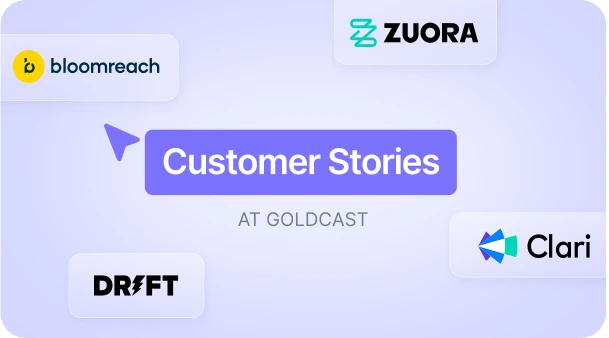Riding the Ebbs and Flows of Event Marketing: Meet Natalia Rybicka from Attentive

Maximize Your Marketing ROI
Join 10,000 other marketers already getting the best tips on running engaging events that boost pipeline and create raving fans.
Welcome to Event Marketers Live, a fast-paced series where we shake off the jargon and get real with the humans behind the scenes of our favorite B2B events and experiences.
In this episode, Kelly chatted with Natalia Rybicka, Senior Director, Event Marketing, at Attentive.
Attentive is dedicated to changing the text message marketing space by developing unique solutions for over 5,000 leading businesses. Its thoughtful and personalized SMS campaigns are known for driving highly engaged subscriber experiences and revenue for clients.
Having started as a “Marketing Generalist,” Natalia spoke about navigating the changing elements of the event marketing space. She also shared her viewpoint on the legacy of virtual and hybrid events.
Read on for a snapshot of her takes, and catch all the insights by watching the full episode on-demand.
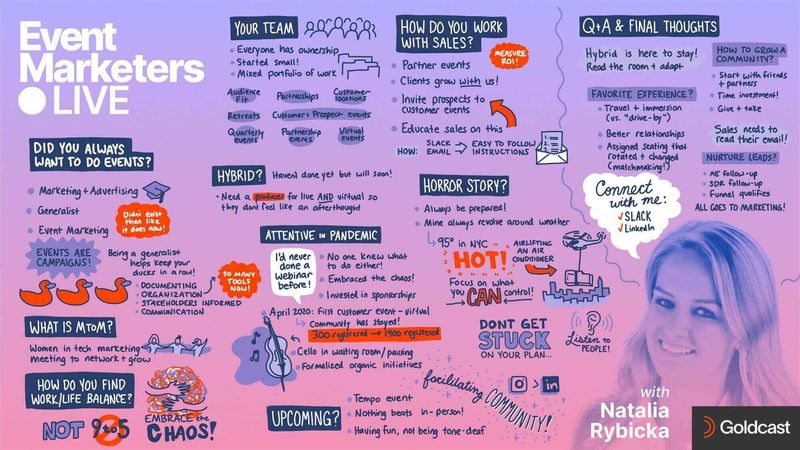
📹 Did you miss the live event? Catch the full interview on-demand!
How does being a Generalist Marketer, especially in the early parts of one’s career, contribute to an Event Marketer's growth?
Natalia emphasized the importance of event marketers seeing themselves as marketers instead of event planners.
In today's world, with any campaign, especially when it's costly, you have to make sure all your ducks are in a row. You have to work closely with design, content, growth, and sales, and you're doing a bit of brand awareness, demand generation, and customer advocacy, among other things.
So, your role touches so many parts of marketing, and having a generalist experience helps you think about events differently.
“Communication is critical as an event marketer. You depend on so many people to create your events.”
Natalia, for instance, doesn't just think about the design and decor for an event, but also about the overall experience of the event and what's going to get an attendee to lean in and want to do business with the company.
From a generalist’s perspective on running events, there are also a few tips or tricks for marketers to stay organized and plan their events from end to end. While everybody has a different organization style, you should try to document everything, especially for complex events—your timelines, the costs, and all the tasks involved.
Natalia, for instance, spoke about having gone through many organization systems and using spreadsheets for big events. There are several tools out there one can experiment with for organizing.
Also, ensure that the stakeholders you're working with feel prepared and informed and understand what needs to be delivered. Communication is critical as an event marketer as you depend on so many people to create your events.
As a very busy Event Marketer with your hands in so many projects, how do you find work-life balance?
As the role is all-encompassing and event marketers live, breathe, and think event marketing all the time, Natalia admitted that finding balance can be a challenge.
“You have to embrace the chaos and accept it, as you are not going to have a nine-to-five job in event marketing,” Natalia elaborated. “Essentially, you work hard, and you play hard.”
There are many benefits to being in event marketing, for you personally, for your career growth, and through the relationships you end up building. So, you need to focus on what you are getting out of it, not just what you are giving up.
You can also find balance by being highly efficient and embracing a flexible schedule. Natalia, for example, has discovered the simple hack of working on her laptop wherever possible. You can carve out extra hours in your day by learning to focus and work while on the move.
Ultimately, it all comes down to having a personality fit for the space and how you embrace and enjoy the job. It also helps that the job culture has changed, and there is much more flexibility with remote working.
What was it like managing events at Attentive in 2020? Do you think you’ll start experimenting with Hybrid events soon?
Natalia shared that there were many firsts and several lessons. For instance, producing webinars, something she hadn’t done before the pandemic.
When the pandemic hit in February of 2020, many were mystified about what to do. There were no real answers. At Attentive, they acknowledged and planned for the question mark over live events coming back. With e-commerce booming, they were able to leverage text message marketing.
They also invested heavily in inexpensive sponsorships. With speaking sessions and other virtual events, the changes allowed them to get the brand out there aggressively. And, in April of 2020, they launched their first customer event, Beyond The Message.
A lot of thought went into thinking from the audience’s point of view—“Why would I join this?” “How is this going to make me feel?” “How can I feel part of a community in a virtual space?” Today, this customer event has grown quite significantly, from 300 registrants initially to around 1,900 in the last session held in June this year.
While admitting they hadn’t done a hybrid event yet, Natalia shared that the company is planning one in the coming Fall.
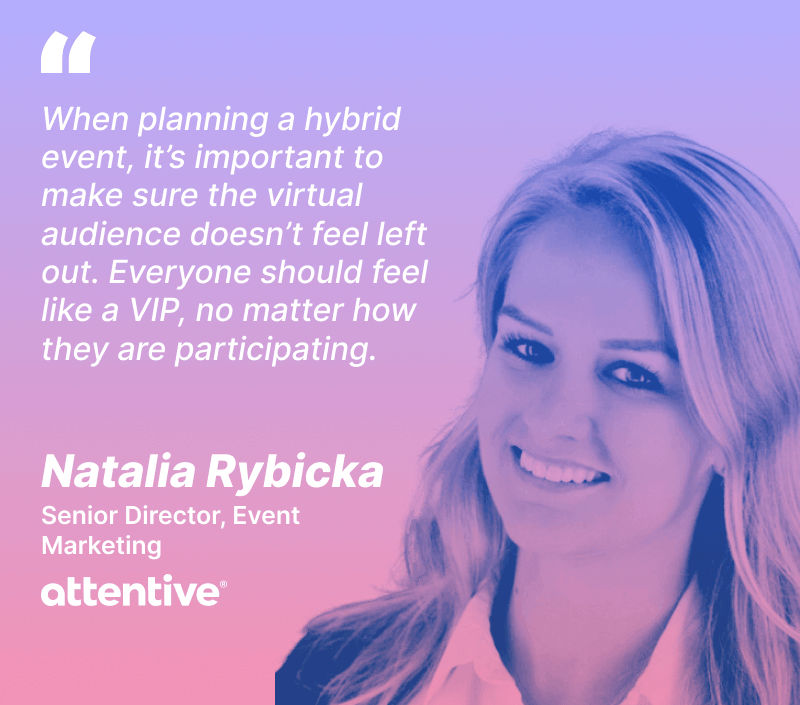
She pointed out the importance of recognizing that going virtual is great for education. So, for a hybrid event, focus on the educational parts and stream those sessions to the virtual audience.
It’s also critical to have a producer that's dedicated to the virtual experience and providing something special for that audience, like a thoughtful networking element. Also, make sure you have someone dedicated to moderating and engaging the chat during virtual sessions.
It’s important to make sure the virtual audience doesn’t feel left out. Everyone should feel like a VIP, no matter how they are participating.
How does marketing work with the sales team to ensure that, while they are providing a great experience, they are also getting ROI?
Natalia was clear in saying their goals have never really changed, and they were always trying to grow the business. At Attentive, prospects and opportunities sourced are the biggest sales metrics. Influence is secondary.
Many of their field events are done with partners—it's a lot easier to get a customer than a prospect to a live event. So, the Attentive team gets to connect with the partner’s customers and vice versa.
Another way that they grow the business is by enabling the customers to grow. They do this by rooting a lot of their events in education and adoption for the customers—how to make the most of the product, showcasing new features, making sure they know which features are launching soon, and learning from each other.
So, customer retention and expansion form a big part of their metrics, apart from new business and sales.
If you are only focused on new business, nurturing existing customers and building loyalty is often missed. Remember, it’s a lot cheaper to get your existing customer to spend more than it is to land a new customer.
Will virtual eventually fade away, or are virtual and hybrid events here to stay?
Weighing in on this hot-button question, Natalia said she doesn’t see virtual or hybrid going away any time soon. She noted, “The tremendous scale realized during the pandemic with virtual events is something you will never get with a live event.”
The fact that customers are still engaged and find value in virtual experiences can and should be used to the event marketer’s advantage. The educational aspect of virtual events is very powerful, and there's a huge potential for a community to build around that, consuming content together.
However, virtual networking, round tables, and one-on-one meetings are a few formats that may eventually go away as they are replaced with in-person options.
“The tremendous scale realized during the pandemic with virtual events is something you will never get with a live event.”
To make sure their events stand out from the crowd, event marketers have to get more creative and think about why people are joining a virtual event or why they are attending a real-life event.
Personas matter in creating virtual events, especially with in-person events coming back. For example, we will see more people at junior levels, people who cannot travel, and smaller companies without the budget or in remote areas at virtual events.
So, tailor your content accordingly. If you are doing something for a C-level executive, think about the big hook and the content they will get that they can't get anywhere else.
If you’re still not sure about the best execution, you can always ask your customers or prospects what they prefer so you can format the event in line with how they would like to join.
—
Thanks so much for joining us, Natalia! That’s all for now, but we’ll see you soon for another episode of Event Marketers Live.

Stay In Touch
Platform
Resources
Company
Community
© 2025 Copyright Goldcast, Inc. All rights reserved.



 Upcoming Events
Upcoming Events Event Series
Event Series On-Demand Events
On-Demand Events